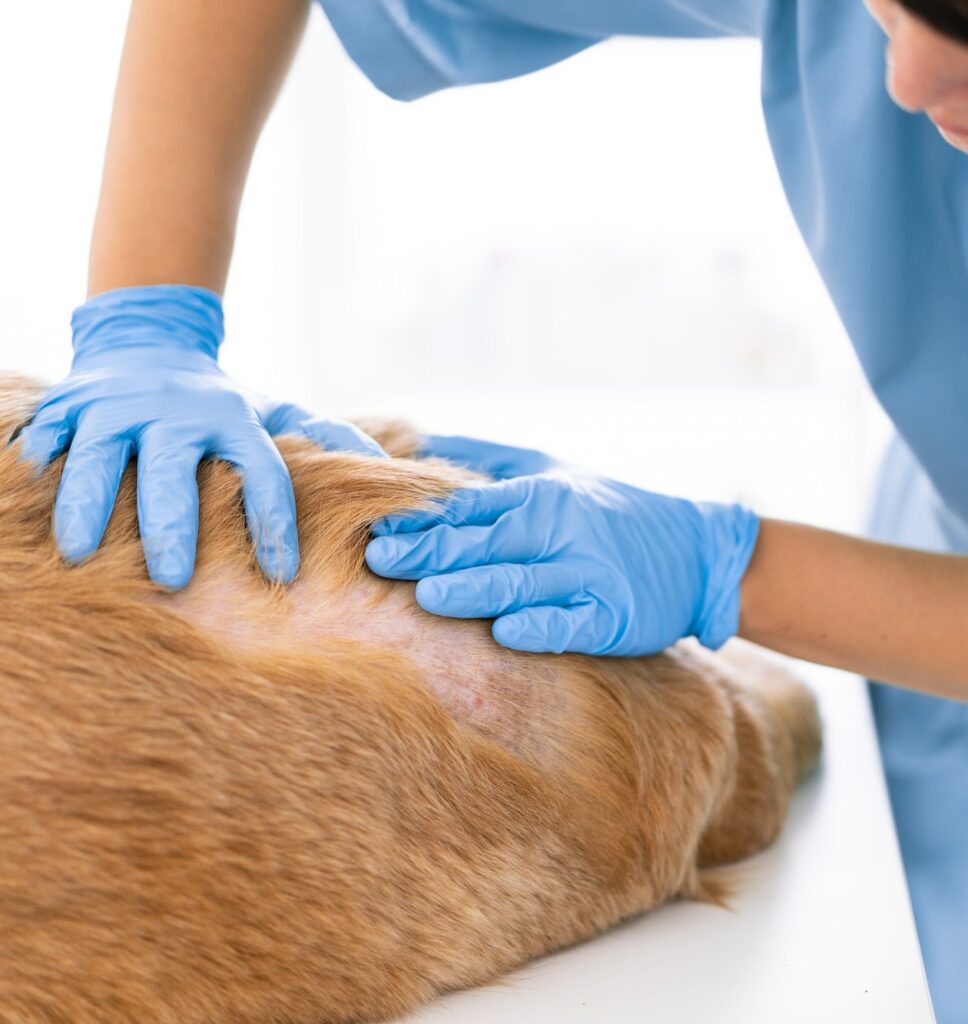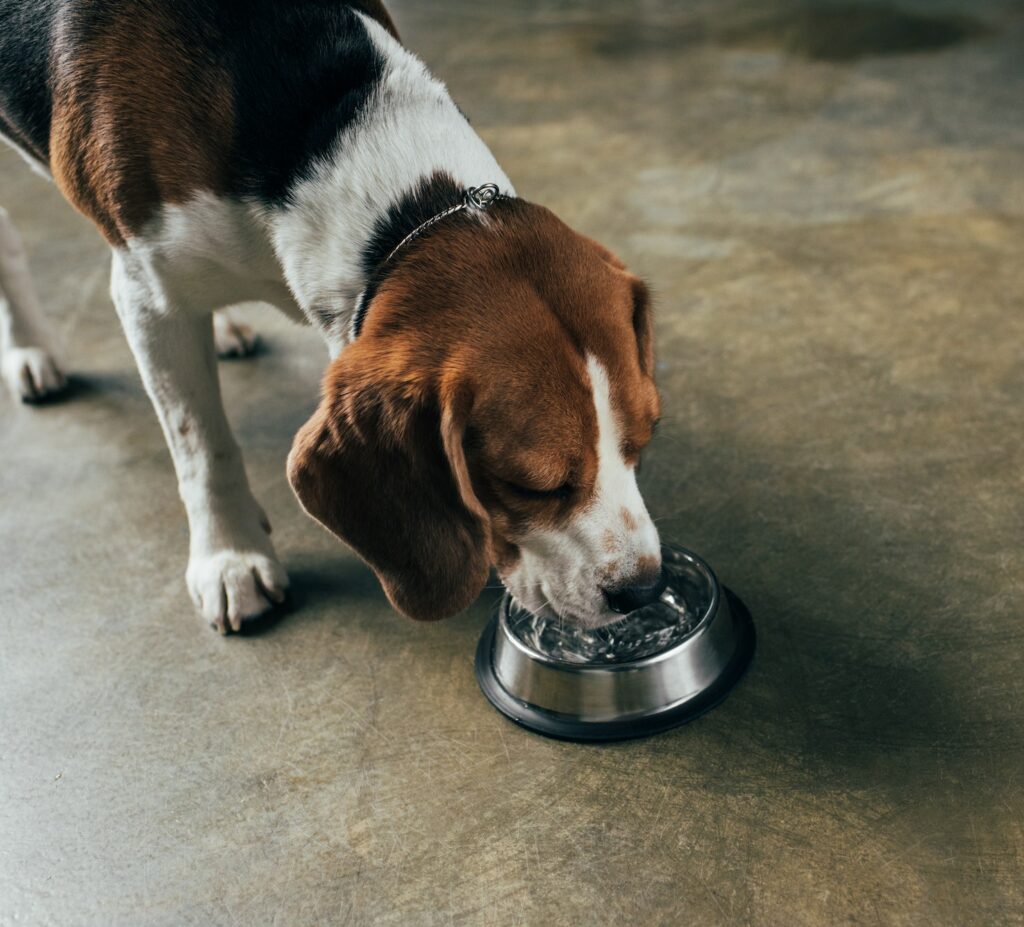Dogs are loyal companions that deserve care and attention all year round, but especially during winter when the cold weather can be harsh on their skin and fur. In this blog post, we will discuss some tips on how to care for your dog during winter, so that they can stay healthy and happy!
How the Cold Impacts Dogs
While you may be thinking that your dog’s fur coat can provide everything they need to stay warm and safe but that isn’t actually the case. There are some important things you should do to care for your dog during winter. As the temperature drops certain risks increase for our furry friends. Here are some examples of how cold impacts dogs.
Difficulty Regulating Body Temperature if Sick or Elderly
When it comes to how to care for your dog during winter, one of the most important things to remember is that dogs have a harder time regulating their body temperature when they are sick or elderly. This means that they are more susceptible to hypothermia and frostbite.
Low body temperature can affect how a dog’s brain and other organs work. If you think your dog may be suffering from hypothermia, look for these signs:
- Shivering
- Lethargy
- Weakness
- Lack of Coordination
- Muscle Stiffness
- Slow Heartbeat
- Difficulty Breathing
- Dilated Pupils
If you notice your dog shivering, acting lethargic, or appearing confused, take them inside immediately and call your veterinarian.
Risk of Being Left in A Cold Car
Another risk to keep in mind when thinking about how to care for your dog during winter is the danger of leaving them in a cold car. Just like humans, dogs can suffer from hypothermia and frostbite if they are left in a cold car for too long. Dogs should never be left alone in a car, regardless of the temperature however, if you must leave your dog in the car when it’s cold, make sure to keep the car warm and monitor them closely.
Skin Irritation and Infection
Dogs are also susceptible to skin irritation and infection which is extremely important to know when you care for your dog during winter. The cold, dry air can cause their skin to become cracked and sore. Their fur also provides less insulation in the winter, which means their skin is more exposed to the elements. To help prevent skin irritation and infection, make sure to keep your dog’s fur clean and dry. You can also apply a pet-safe moisturizer to their skin to help keep them hydrated.

Increased Joint Stiffness and Discomfort
Another thing to keep in mind when learning how to care for your dog during winter is that the cold weather can also cause increased joint stiffness and discomfort. This is especially true for older dogs or dogs with arthritis. To help ease their discomfort, make sure they are getting plenty of exercise and keeping their joints active. You can also apply a pet-safe joint supplement to their food to help ease their pain.
More Susceptible to Slipping or Falling and Exposure to Toxins
The cold weather can also make dogs more susceptible to slipping or falling. Be extra careful when walking your dog on icy sidewalks or in snowy areas. You may also want to consider investing in a set of dog booties to help keep their paws safe and warm.
Increased Risk of Disorientation
The cold weather can also cause dogs to become disoriented and lost. Dogs have a much better sense of smell than humans, which means they can often follow scents that lead them astray. To help prevent your dog from getting lost in the winter, make sure they are always wearing a collar with ID tags. You may also want to consider microchipping your dog in case they do get lost.

Altered Metabolism and Nutrient Needs
The colder weather can also cause a dog’s metabolism to slow down, which means they may need fewer calories than usual. However, it’s still important to make sure they are getting all the nutrients they need. Talk to your veterinarian about any changes in your dog’s diet during winter.
Tips for How to Care for Your Dog During Winter
Now that you know some of the ways the cold weather can affect your dog, here are a few tips for how to care for your dog during winter:
Limit Your Time Outdoors
When the weather is cold, it’s important to limit your time outdoors. This is especially true if you have a short-haired dog or a dog that is sensitive to the cold. If you must go outside, make sure to dress them in warm clothing and pay close attention to their body language.

Go out When the Sun is Out
When you care for your dog during winter, something else to keep in mind is that it’s best to go out when the sun is out. The sun will help warm up your dog and the pavement, making it more comfortable for them.
Protect Them From Heaters
Dogs are also susceptible to burns, so it’s important to protect them from heaters and fireplaces. Never leave your dog alone in a room with a heater or fireplace on. And make sure they have a cozy spot to sleep that is away from any heat source.
Make Sure to Moisturize
When you care for your dog during winter it is important to remember to moisturize. The cold, dry air can cause their skin to become cracked and sore. Their fur also provides less insulation in the winter, which means their skin is more exposed to the elements. To help prevent skin irritation and infection, make sure to keep your dog’s fur clean and dry. You can also apply a pet-safe moisturizer to their skin to help keep them hydrated.

Keep Your Dog Hydrated
It’s also important to make sure your dog is getting enough water. They may not be as thirsty in the winter, but they still need to stay hydrated. Add a little bit of salt to their water bowl to encourage them to drink more. And if you’re worried they’re not drinking enough, talk to your vet about giving them oral rehydration solutions.
Pay Attention to Their Paws
Another important part of how to care for your dog during winter is to pay attention to their paws. The cold weather can cause their paw pads to become cracked and sore. Be sure to check their paws after each walk and clean them off with a pet-safe cleanser. You may also want to consider using a paw balm or wax to help protect their paw pads from the cold.
Avoid Exposure to Toxins
Winter weather can also bring with it a number of toxins, like antifreeze and ice melting products. These toxins can be deadly to dogs if ingested, so it’s important to keep them away from your dog. Be sure to clean up any spills immediately and store all toxins out of reach.
Keep An Eye on Where They Play
When you care for your dog during winter, it’s also important to keep an eye on where they play. Ice and snow can cover up things like sharp rocks or broken glass. Be sure to check the area before letting your dog off their leash.
Keep In Mind
The cold weather can be tough on dogs, but with a little extra care they can enjoy a happy and healthy winter. Just remember to limit their time outdoors, keep them hydrated, and pay attention to their paws. And if you have any concerns about how to properly care for your dog during winter, be sure to talk to your veterinarian!
